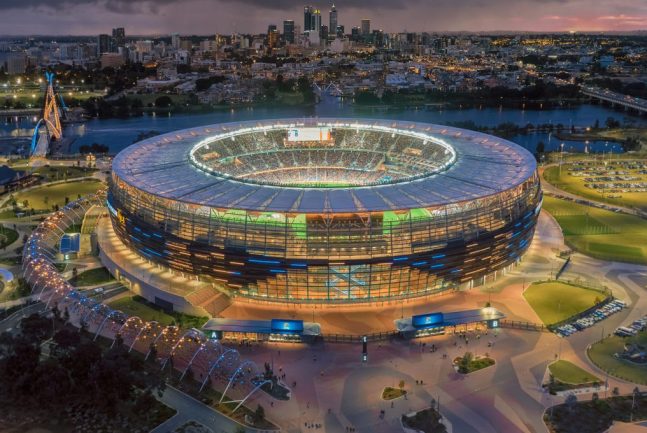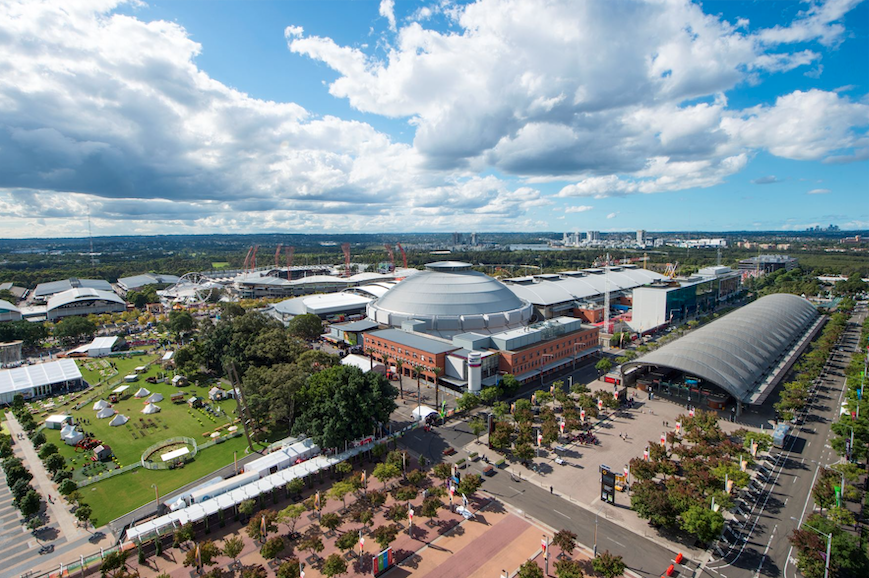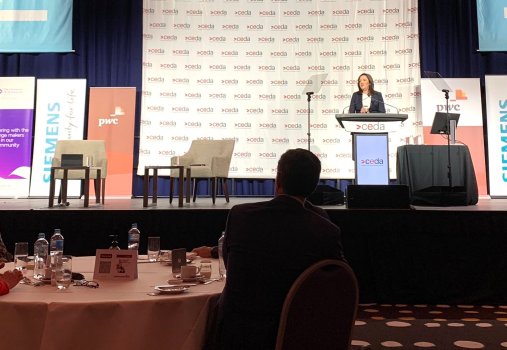
In an industry which requires tough decisions to be made quickly more than ever, large events venues have adjusted and adapted the way they operate in order to continue providing successful events, safely.
In world where it seems uncertainty is the only certainty, managing an event looks very different today to how it did just a couple of years ago.
Venues in particular have had to shift their focus and undergo significant changes in order to comply with government-mandated health orders, which often seem to change at the last minute. While there’s only so much forward-planning that can be done, navigating the current climate with the ability to be flexible and adapt quickly has proven vital for major events venues.
Adaptability and flexibility are key
Given the ever-evolving nature of government restrictions and social distancing regulations, large event venues have become more crucial for events planners than ever.The most obvious benefit is their sheer space and size, which offers more flexibility when it comes to accommodating last minute changes. At Sydney Showground, having more than 120,000 square metres of event space allows for an event’s footprint to expand should social distancing guidelines change at short notice, whilst also meeting the event’s specific requirements.

“This past year has been nothing but adaptations, from the utilisation of space for film shoots, to last-minute storage options, rehearsal space for music productions, and hosting additional games for AFL and non-GWS GIANTS teams – I think we’ve done it all,” Sydney Showground chief operating officer Darryl Jeffrey says.
Implementing various changes to day-to-day operations based on changing health advice in order to meet the needs for safe events, is something that has become the norm for Optus Stadium. Putting safety at the forefront of everything it does, the state-owned venue works in partnership with WA Police and the WA Government’s Public Health Emergency Operations Centre.
“From enhanced cleaning regimes, playing games behind closed doors, the implementation of quarantine arrangements for travelling teams and the building of a training facility on one of our ovals – every aspect of our business has evolved rapidly,”Optus Stadium chief executive officer Mike McKenna says.
With the pandemic forcing almost all businesses to re- evaluate the way they work, applying a flexible approach to partner and client relationships has also become a vital step in adapting to the industry’s challenges.
“We’ve also adapted the way we work with hirers,” McKenna says. “In our Meetings and Events businesses, we have adopted cancellation terms and refund policies to better support our clients and reflect the nature of the changeable environment we find ourselves in.”
Thankfully, this is paying off for big venues and their clients, with Optus Stadium attracting a significant number of events recently, thanks to the variety of its function facilities and its COVID-19 management.
“Clients that would have previously chosen to hold events at hotels in the Perth CBD,
are instead choosing our venue because of our outstanding food offering, our ability to be flexible with arrangements, and because we are a trusted venue from a COVID-19 management perspective.”
Changes and challenges
Moving forward, Jeffrey adds that venues will have to operate leaner, more efficiently and with increased flexibility, including risk sharing.
“We will need greater flexibility regarding payment terms and cancellation policies, and we need to work closer with event organisers if we expect them to take a risk. I think we’ll also need to foster new events and entering into true partnerships where the venue shares the risk with the organisers,” Jeffrey says.
However, other challenges remain for the time being, most of which are to do with staffing.
“It is very difficult to recruit and retain casual event day staff with the hospitality sector impacted by staff shortages,” McKenna says. “Attracting and retaining chefs so we can continue to provide food of the high standard we do is always a challenge, but not something we will ever let slip, so this is a major focus for us.”
Optus Stadium, which McKenna says was designed with a focus on sustainability, will also continue working in partnership with Oz Harvest to uphold its commitment to minimising waste.
“We are proud of our ability to minimise wastage and redirect our food to those who need it,”McKenna says.“Our relationship with OzHarvest since the stadium opened in 2016, has really come to the fore with several last- minute cancellations of crowds at major events.”
Looking forward
While the industry continues to grapple with and adapt to the challenges of COVID-19, it remains firmly focused on the future, with both venues having plenty to look forward to over the coming 18 months.
“Our events calendar for late 2021 and throughout 2022 is extremely strong, which is very promising” Jeffrey says.
McKenna says Optus Stadium has also developed a new strategic vision for the stadium and surrounding Stadium Park Precinct, which has brought events such as the Telethon Family Festival to Perth and is looking forward to a busy summer of cricket.
“We are looking very busy across our special events side of the business,” he says. “We also have some exciting new events and opportunities for Stadium Park and in January, we will host the fifth Ashes Test, the first ever at the Stadium, which is set to be a historic event.”
“The pandemic and lockdowns have been extremely tough on the events industry, particularly the staff,” Jeffrey says.
“However, I think our collective passion for events drives us, not to mention the privilege to work in such a unique industry.
“It’s clear that organisers are chomping at the bit to get up and running again and we are excited to get cracking as soon as it is safe to do so.”



